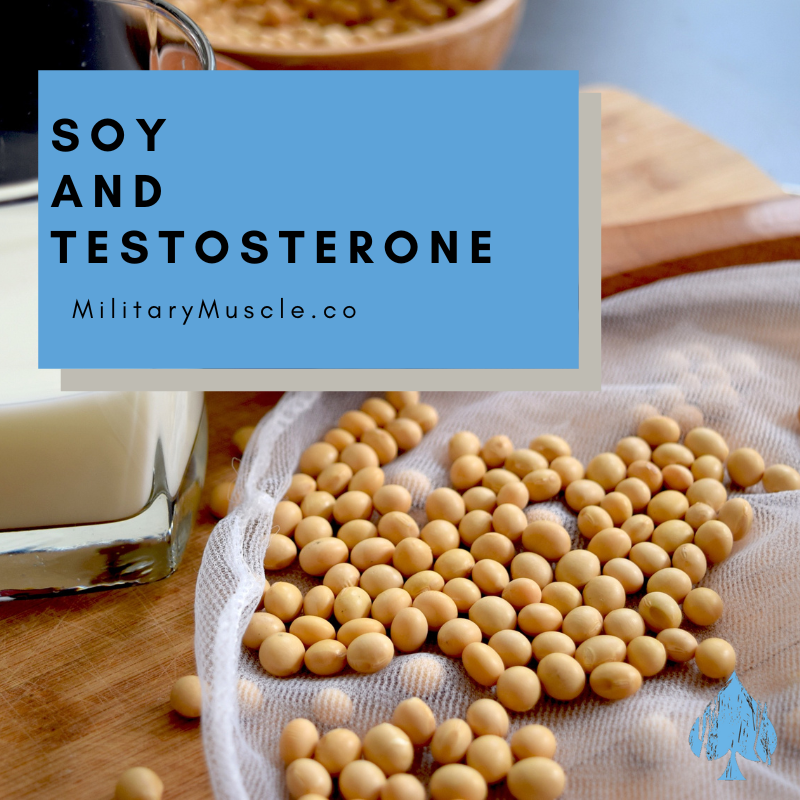Soy and Men's Hormones
Written by Ben Bunting: BA, PGCert. (Sport & Exercise Nutrition) // British Army Physical Training Instructor // S&C Coach.
--
Do I need to worry about the effects of Soy on testosterone? Many men are worried about this question, but the truth is that soy doesn't have any significant effects on testosterone levels. There are numerous studies to support this, but the conclusion is that soy doesn't affect testosterone levels. Moreover, soy consumption does not increase erectile dysfunction and sperm motility. The effects of soy on testosterone aren't likely to affect a man's quality or quantity of sperm, which are indicators of a healthy body.
Isoflavones in soy do not affect sperm quality
The intake of soy foods and isoflavones is not directly related to sperm concentration, according to a new study. The consumption of isoflavones and soy foods was inversely related to sperm concentration after accounting for multiple confounders. The association was stronger for soy foods, as men with the highest soy food intake had 35 million fewer sperm per milliliter of sperm than those with the lowest soy food intake. However, men who consumed the most soy food were found to have significantly less sperm concentration than those who did not consume soy.
While soy has been linked to reduced sperm counts and decreased ejaculate volume, the results of other studies suggest that the phytoestrogens found in soy foods do not affect sperm quality in men. In one study, researchers examined 99 male partners of subfertile couples. Those who ate the highest amount of soy had sperm concentrations that were 32 percent lower than those of non-soy eaters, but the men still had higher-than-average sperm counts.
They do not affect sperm count
High soy intake is not associated with reduced sperm count and increased breast tissue in men. In fact, the effects of soy on male fertility are not known, but the foods are not considered to be harmful for the human gut, either. In fact, soy protein interacts with microorganisms in the gut and digestive tract to provide a healthier environment. Moreover, studies show that soy helps in sperm health.
Despite the mixed results, one study found that soy foods and isoflavones consumption were inversely related to sperm concentration. This association was particularly strong among men who consumed high levels of soy food. In one study, the men who ate the most soy products had about 35 million fewer sperms per milliliter than men who didn't eat soy foods. Although the association between soy food intake and sperm concentration did not reach statistical significance, men who ate more soy foods had fewer sperm per milliliter of sperm than men who did not eat soy.
They do not affect erectile dysfunction
Soy protein does not cause men to grow excessive breast tissue, or become more feminine. Soy products do not lower testosterone levels in humans, and they have no effect on sperm count. In fact, soy is good for human gut health, as it reacts favorably with the microorganisms in the digestive tract and stomach. This helps maintain a healthy environment for the prostate gland.
In fact, the American diet contains about 12% of daily caloric intake from dairy foods. The high amounts of saturated fats found in dairy products contribute to arterial blockage, reducing blood flow to the penis and heart. This could be a contributing factor to erectile dysfunction. In addition, cows are fed mainly with grain, and the oil and saturated fats in meat can also contribute to arterial blockage.
They do not affect sperm motility
Soy isn't the only factor that affects sperm motility. A recent study conducted by Harvard School of Public Health examined the relationship between sperm quality and phytoestrogens, plant compounds that act like hormones in the body. Researchers found that men who consumed soy products had 41 million fewer sperm per millilitre than those who didn't. "Normal" concentrations of sperm in men are around 80-120 million per millilitre.
Studies have linked processed meats to various health problems, including reduced sperm motility and lower sperm count. These products improve the taste and texture of almost anything, and men are likely to add them to their diets. But while soy products are not a good choice for sperm health, they may be beneficial for your health. The research was limited to men who consumed soy products, so the conclusions are a bit premature.




